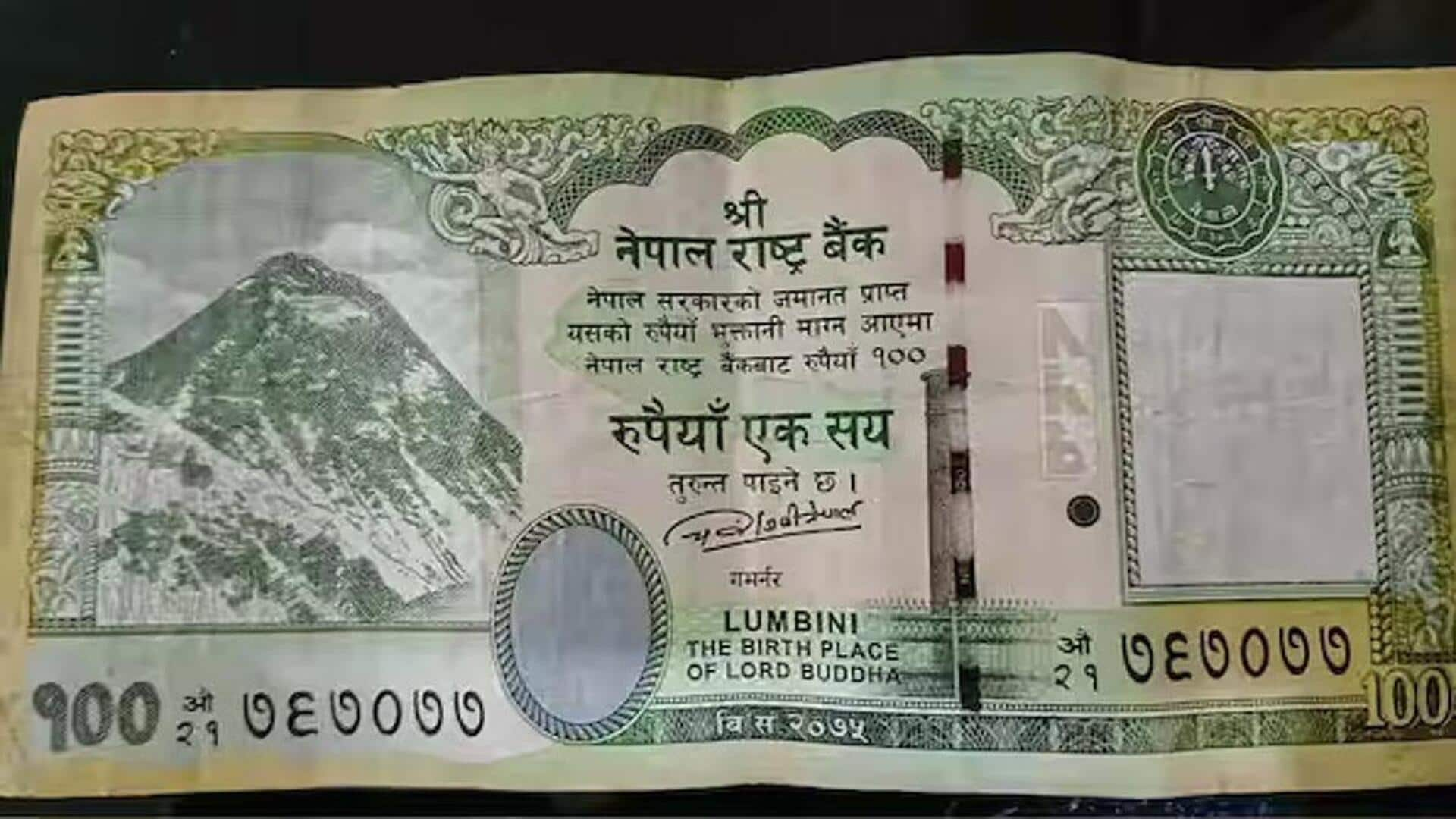
'Perhaps Chinese...': Nepal ex-envoy on banknote with disputed Indian territories
What's the story
Former diplomat KP Fabian has urged Nepal to diplomatically engage with India on the disputed territories of Lipulekh, Limiyadhura, and Kalapani. The territories have been included in the new NPR 100 banknote issued by Nepal Rastra Bank (NRB). "This is most unfortunate, and more importantly, unnecessary," Fabian said. He suggested that if Nepal believes these areas are part of its territory, it should engage India diplomatically instead of altering currency designs.
Envoy
'Nepal has done something foolish'
"If Nepal had the conviction that a part of what is Indian territory is part of Nepalese territory, then Nepal should engage with India diplomatically, not just put an updated map on its currency. That is the best way to resolve problems, especially with neighbors," he told ANI. He added, "Nepal had no business to do it...Perhaps the Chinese, and even Pakistan, have been prompting Nepal to do this...Nepal has done something foolish in terms of its own interest."
Currency details
Nepal's new currency features disputed territories
The new NPR 100 banknote, which was launched on Thursday, features an updated map with the disputed territories. The NRB said the note has "refined security and identification elements to enhance authenticity and usability." The design of this currency was approved by Nepal's Cabinet under former Prime Minister KP Sharma Oli in May 202.
Printing contract
China involved in printing Nepal's new currency
Notably, a Chinese firm was contracted to print these new banknotes. The total cost of printing 300 million notes was approximately $8,996,592 (over NPR 1.2 billion). Each note costs around NPR 4 and 4 paisa to print. The design includes Mount Everest on the left side and a watermark of Nepal's national flower, Rhododendron, on the right side.
Map controversy
Banknote details
The center of the note has a map of Nepal with an Ashoka Pillar. A one-horned rhinoceros with its calf is prominently displayed on the front. The back features Maya Devi in silver metallic ink inside an oval. Nepal shares a border of more than 1850 kilometers with five Indian states: Sikkim, West Bengal, Bihar, Uttar Pradesh, and Uttarakhand.
India
How India responded
India has reacted to the note, with the Ministry of External Affairs saying that it is a "unilateral act" that "does not change ground reality." "On territorial claims, our position remains that such claims are neither justified nor based on historical facts and evidence. Any unilateral artificial enlargement of territorial claims is untenable," Ministry of External Affairs spokesperson Randhir Jaiswal said in the past.